Daily Program
And the Value of Play for Learning
The Early Childhood years are crucial and formative years. What takes place during these years plays an important part in determining the way a person feels about themself, the way a person relates to others, their capacity to solve problems, and the way a person thinks and learns.
Relationships and Communication
We see one of the key elements of our Pre-school program as supporting children in developing the tools, knowledge and insights of communication and how to initiate, develop and sustain positive relationships and social connections. In terms of having a sense of belonging, relationships are pivotal. We endeavour to place an emphasis on communication, positive relationship building and also on learning within the context of groups and social contexts throughout our pre-school day. We place a value on supporting and fostering positive and respectful relationships and communication between pre-school staff and families, and within the pre-school team.
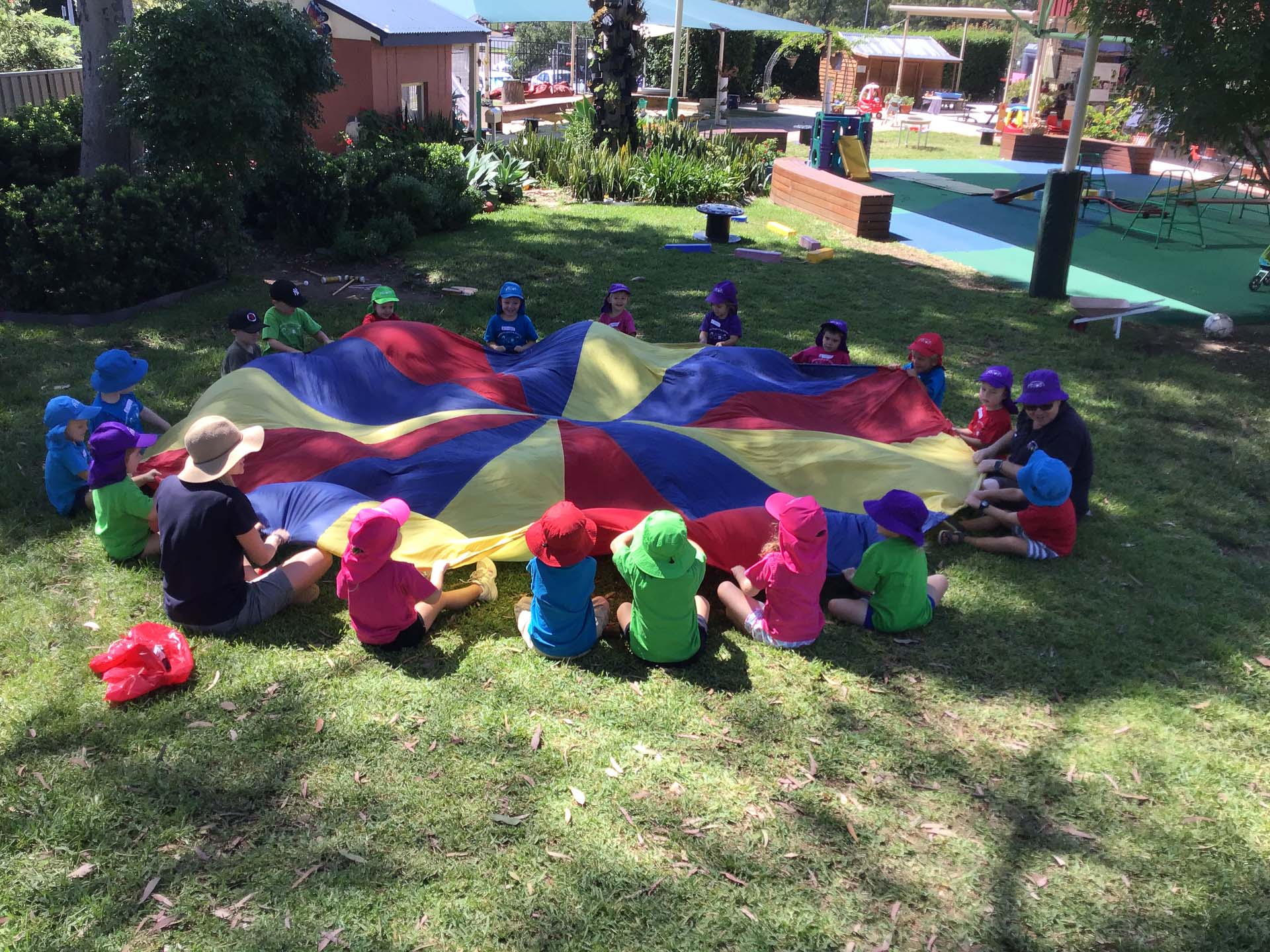
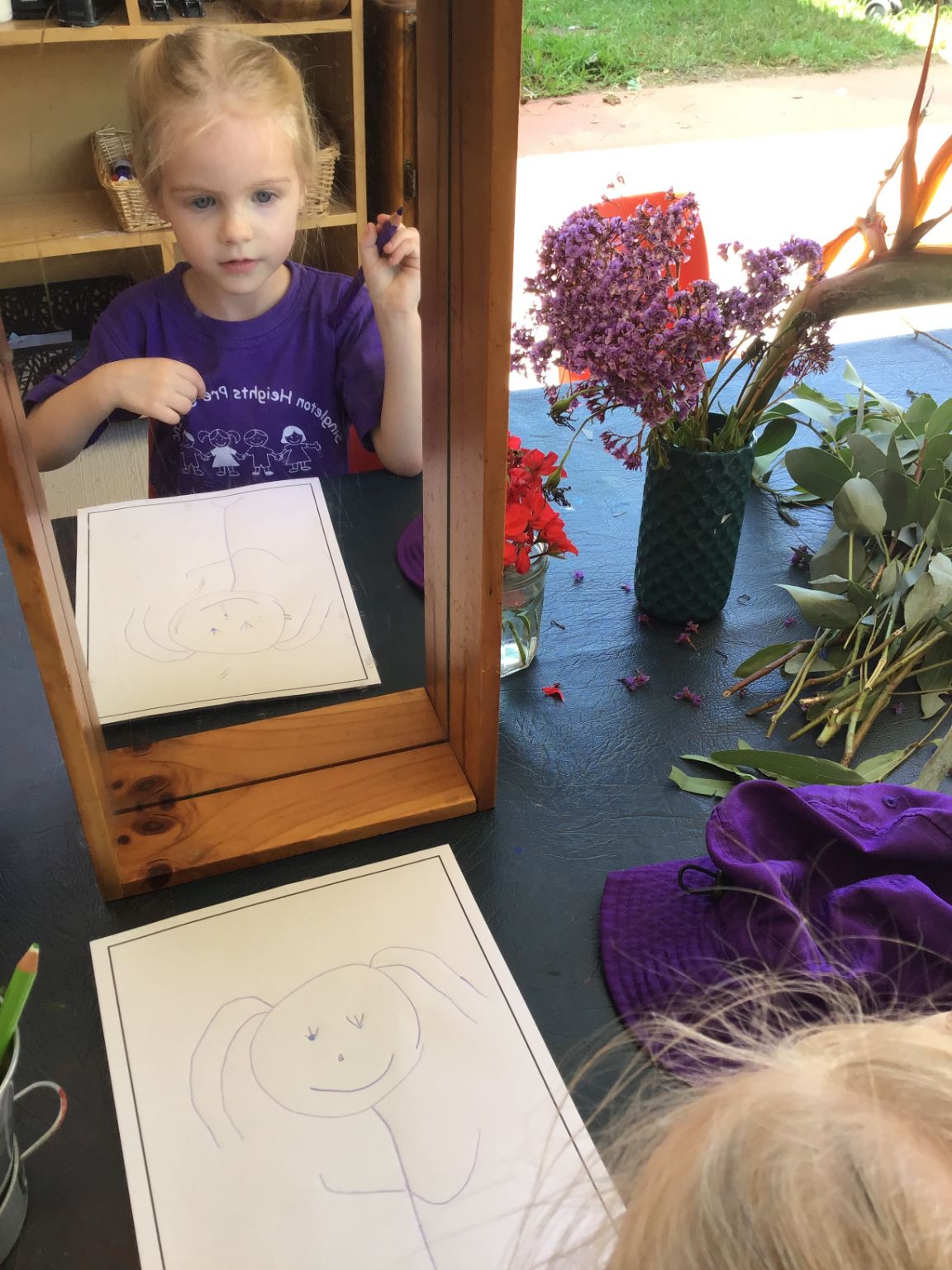
Early Years Learning Framework
Our program embraces the National “Early Years Learning Framework” which encompasses the interactions, experiences, routines and events, planned or unplanned, that occur in the Pre-School to foster children’s learning and development. The framework highlights five learning outcomes that capture learning and development during early childhood. These outcomes focus on each child’s sense of identity, their connection with and contribution to the world, sense of wellbeing, involvement in and confidence to learn, and the development of communication.
Educators work with the children to create a documented record (portfolio) of their experiences and development during their time at Pre-School. This guides the program cycle that includes planning, documenting and evaluating for each child’s learning.
Educational Program
The educational program at Singleton Heights Pre-School is based upon the children’s active involvement in a variety of planned and spontaneous activities and experiences. The curriculum is child-initiated and teacher-guided, allowing children to make their own choices. It’s based on individual and group interests, needs, ages and strengths. Every child is a unique person with their own interests, learning style, growth timetable, and culture. When given the time, space, and environment, a child can ask questions to gain knowledge, construct new ideas, link them to existing knowledge and make sense of their world.
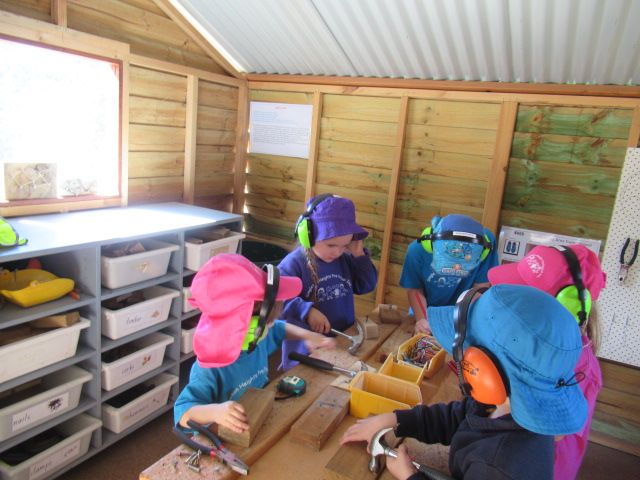
The children are viewed as capable, independent, confident and involved learners who come to pre-school with an abundance of skills, knowledge and understanding. The program caters to interests expressed or shown by the children and their families with a variety of learning centres being incorporated into the environment and program that can be revisited at a later time. A child’s own interests and excitement will motivate them to learn, while educators intentionally provide opportunities to extend on skills and knowledge. Based on children’s responses and actions, staff will introduce materials, questions and opportunities that encourage the children to explore a topic and while some directions are anticipated, projects often move in unexpected directions. This curriculum planning and implementation can revolve around open-ended and long-term projects. It is dynamic and ever changing, challenging, fulfilling and interesting.
A planned program of activities is offered each day for both indoor and outdoor environments, promoting the importance of play for learning. The program is available for families to read and provide any comments. The children engage in learning relationships, explore and discover, practice, problem solve, reflect, research, negotiate and show respect for our environment. They achieve in a learning environment where all their activities and pursuits are developmentally age appropriate. Their learning is supported by experienced, qualified and caring staff who work in partnerships with families.
Experienced Educators
At Singleton Heights Pre-School we recognise the tremendous importance of these Early Childhood years and the subsequent importance of our role as Early Childhood Educators in supporting, nurturing and facilitating growth and development of children.
Our highly qualified and experienced teaching team plays an important part in supporting children’s learning within the context of our play-based program. We provide resources which support children to form connections, to explore, create, construct and solve problems. We maintain a balance between experiences that are initiated by the children and those that are supported or facilitated through thoughtful and intentional teaching.
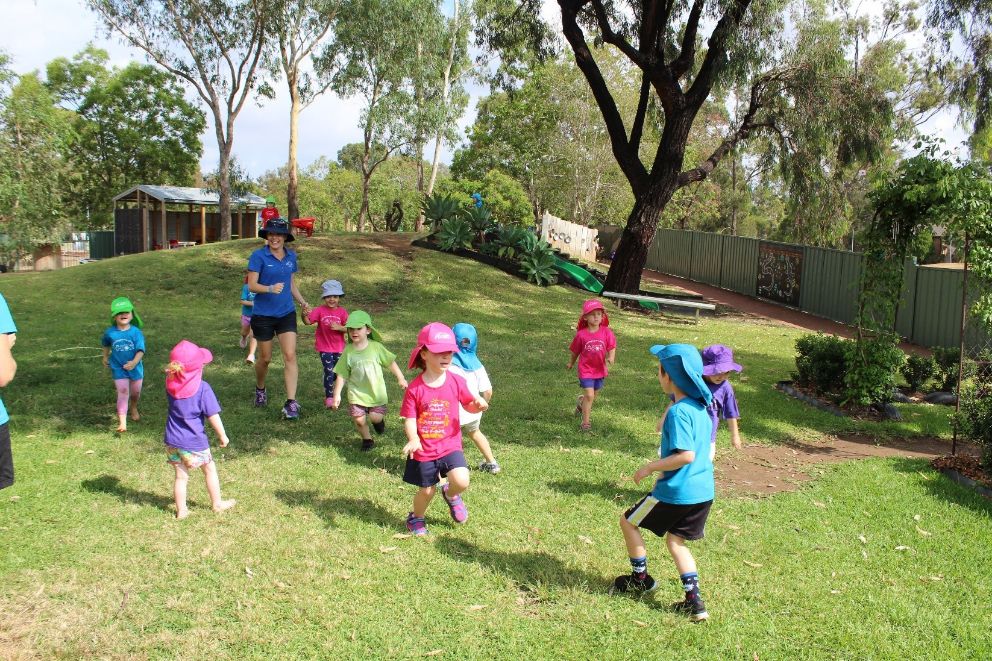
With this in mind, we believe that it is important to establish a professional culture of reflective practice, one where ongoing professional development for Educators is supported and encouraged. An environment where there are high expectations for the quality of the educational program and a mutual respect between families and Educators, as we work together to ensure a positive start in the early years for pre-school children.
Singleton Heights Pre-School acknowledges that qualified and committed Educators are a core factor in the quality of a service. We believe adults, in our pre-school, bring with them their own sense of being and are encouraged to share information in relation to Early Childhood development and teaching pedagogy.
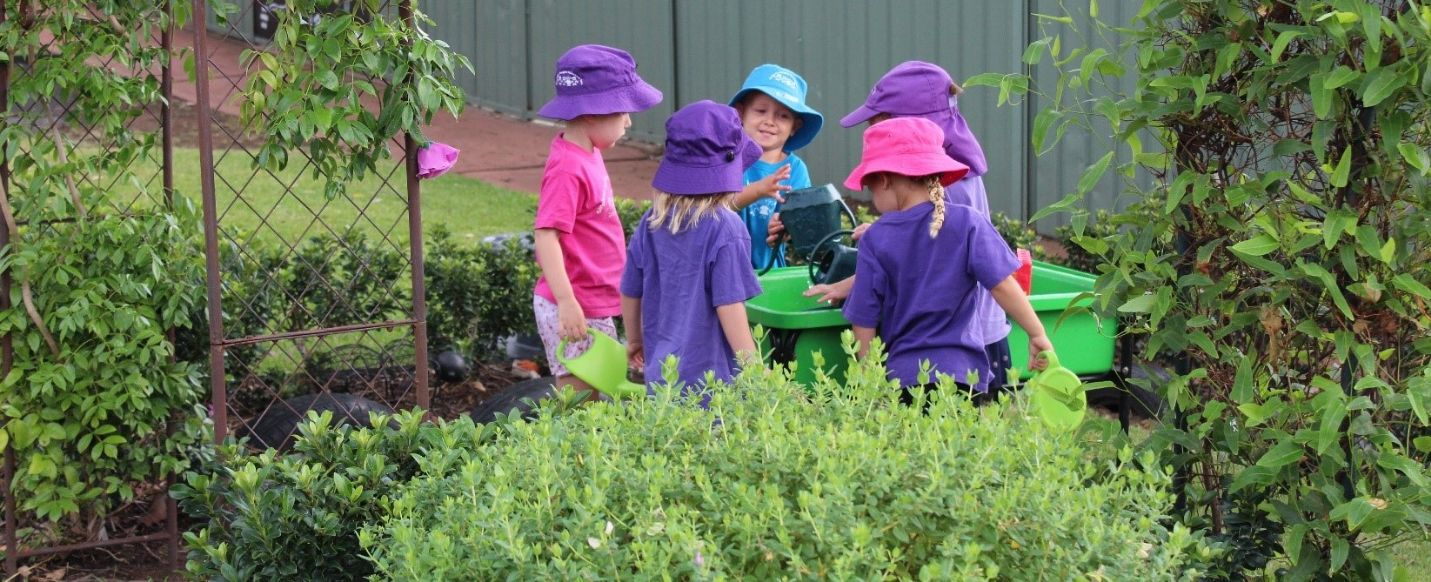
Our Commitment to Sustainability
The Pre-School is proud of the sustainable practices we have introduced and are committed to the continual improvement of our facility, environment and the educational program inclusions to support child learning.
Our achievements include:
The installation of 45 solar panels
3 vegetable gardens which are harvested to support cooking experiences in the program and excess produce is shared with families
“Sub Pod” worm farms as well as a freestanding farm which produces “worm wee”, which is used as fertiliser on the gardens.
The children sort waste every day, separating recycled products, soft plastics, and food waste for compost and use in the worm farms.
Recycled plastic products are included in the outdoor environment, including play platforms.
The service purchases second hand furniture.
2 rain water harvesting tanks supply water for the children to use in play in the sand pit and camp kitchen while a 3rd supplies water for the irrigation of our grassed areas.
We are fortunate to have a natural bush area next to the Pre-School. The children engage in learning about the local environment including litter, wildlife and ecosystems.
We support the education of families by sharing information about sustainable practices.
Our “Book Swap” project.
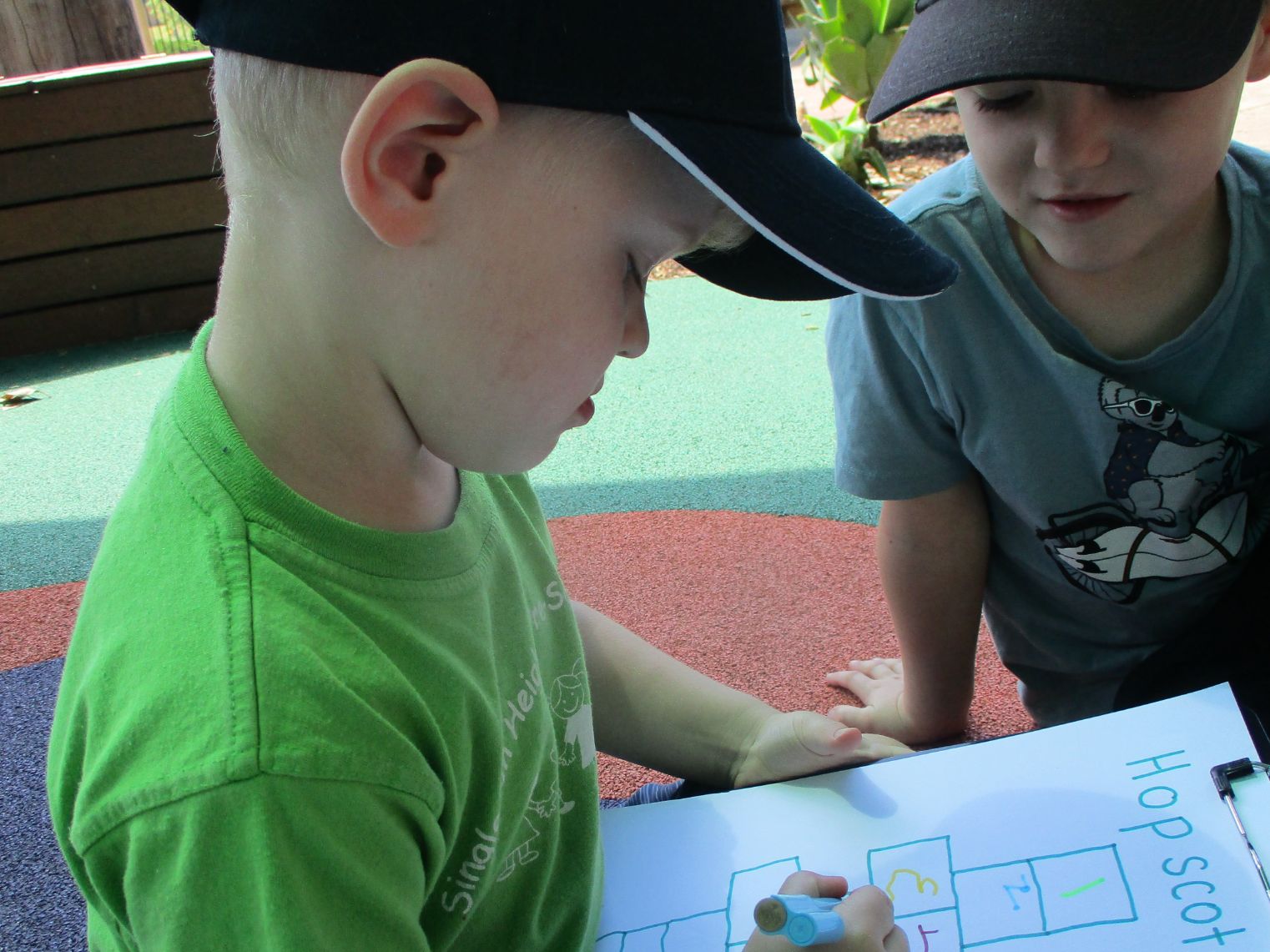
Learning, Education and Transition to School
We support all areas of the curriculum through our educational, play-based program. Foundations of literacy, numeracy and other pre-academic skills are learnt both in the context of play, and through responsive and intentional teaching. In practice, we look for opportunities to engage with children about text and meaning, language, rhyming, ordering, counting and matching, while developing emotional regulation, social skills, coordination, dexterity, independence and responsibility in a natural play-based context.
Our program aims to equip children for a positive transition to school, and we pay attention to research that suggests that emotional and social preparedness are key drivers in terms of being ready for school. Further, we pay attention to the Early Years Learning Framework for Australia which reminds us to focus on a child’s ‘being’ as well as a child’s ‘becoming’. That is, a recognition of the here and now, as well as future development and transitions.
Our curriculum includes many opportunities for each child to engage in experiences and activities that promote ‘School Readiness’ with the opportunity for a ‘Transition to School’ document to be completed and shared with the child’s enrolled school. We also provide a ‘School Readiness’ package to all families whose children will be enrolled in school.